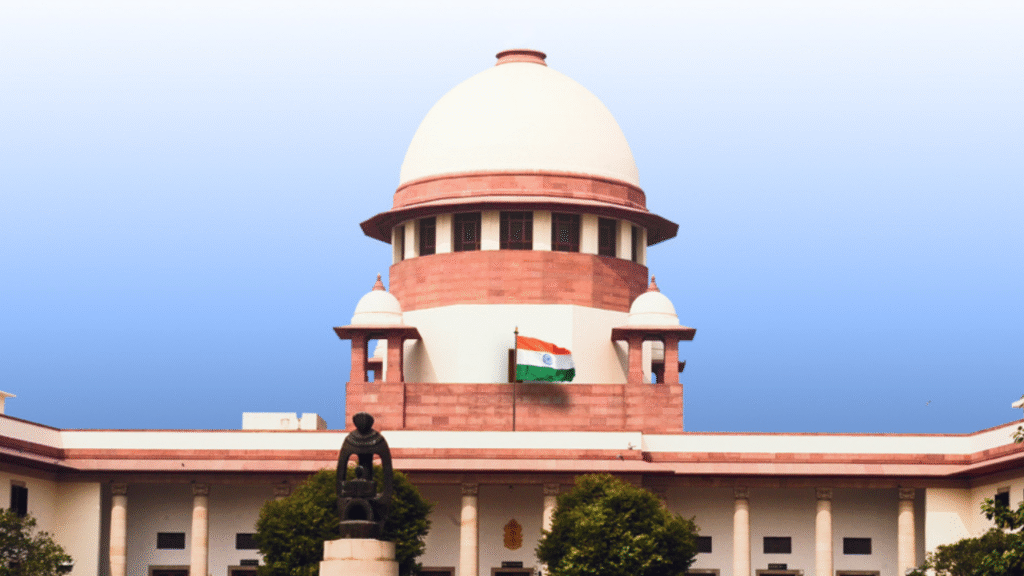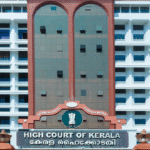Criminal Procedure Code, 1973 – Sections 156(3), 200, 482 – Indian Penal Code, 1860 – Sections 120B, 405, 406, 415, 420 – Quashing of First Information Report (FIR) – Criminal Breach of Trust – Cheating – Criminal Conspiracy – Civil Dispute – Simultaneous Proceedings – Compliance with Priyanka Srivastava v State of Uttar Pradesh (2015) 6 SCC 287.
(2025) 7 SCD 99 : 2025 INSC 917
S. N. VIJAYALAKSHMI & ORS. v. STATE OF KARNATAKA & ANR.
CRIMINAL APPEAL NO. ____ OF 2025 (@ SLP (CRL.) NO. 8626 OF 2024); JULY 31, 2025
CORAM: AHSANUDDIN AMANULLAH, J. & SUDHANSHU DHULIA, J.
Facts: The second respondent/complainant (Keerthiraj Shetty) lodged a Private Complaint Report (PCR) alleging offences, including cheating (S.420 IPC) and criminal breach of trust (S.406 IPC), against the appellants (S.N. Vijayalakshmi & Ors.) in connection with a property dispute. This PCR was subsequently referred to the police for investigation under Section 156(3) of the CrPC, leading to the registration of an FIR. The core of the dispute revolved around a “subject property” where the appellants, who were owners, had entered into an Agreement to Sell (ATS) with the complainant (as a nominee) on November 30, 2015, for a consideration of Rs.3,50,00,000/-. A General Power of Attorney (GPA) was also executed in the complainant’s favour, granting him powers including the power to sell the property after clearing its title. The complainant alleged that after successful litigation efforts made by him and Ravishankara Shetty to make the title marketable, the appellants refused to honour the ATS, revoked the GPA, and conveyed the property to appellant no.4 via a registered Release Deed and Gift Deed in June/July 2022. Consequently, the complainant filed a civil suit seeking specific performance of the ATS and a declaration that the subsequent deeds were not binding. The appellants challenged the FIR before the High Court, which dismissed their petition seeking quashing of the FIR. This appeal challenged the High Court’s dismissal.
Issue: (i) Whether the allegations in the FIR prima facie established the commission of criminal offences under Sections 406 and 420 read with Section 120B of the IPC; (ii) Whether civil and criminal proceedings could simultaneously proceed on the same set of facts; (iii) Whether the complainant’s procedural compliance with the requirements laid down in Priyanka Srivastava (supra) was adequate.
Held:
On Section 406 IPC (Criminal Breach of Trust): The Court determined that the foundational requirement of “entrustment” for Section 406 IPC was absent. Since the subject property belonged to the appellants, who held title and ownership rights, they were not “entrusted” with it in the manner required for criminal breach of trust.
On Section 420 IPC (Cheating): The Court found no indication that the appellants, by deceiving the complainant, fraudulently or dishonestly induced him to deliver any property. The ATS itself, as per Clause 6, stipulated that possession of the subject property would be handed over in a ready condition upon the execution of the Sale Deed. This contractual provision contradicted the complainant’s assertion that Ravishankara Shetty had taken possession of the property much earlier, thereby falsifying the claim necessary to attract Section 420 IPC. The Court concluded that there was no criminal aspect in the allegations ex-facie.
On Criminality and Simultaneous Proceedings: While affirming that there is no absolute bar to simultaneous civil and criminal proceedings, the Court emphasized that for criminal proceedings to continue when a civil remedy has been availed, there must be an overwhelming element of criminality. Given the absence of such an element, and with a civil suit already pending, allowing the criminal proceedings to continue would amount to an abuse of the process of the Court.
On Compliance with Priyanka Srivastava: The Court upheld the High Court’s determination that the non-filing of the supporting affidavit concurrently with the PCR was a curable defect. The complainant had filed the requisite affidavit before the Magistrate passed the referral order. The Court clarified that the directions in Priyanka Srivastava are mandatory but operate prospectively, and that compliance is sufficient if the affidavit is filed before any substantive order is passed by the Magistrate.
Conclusion on Quashing: Based on its findings that the essential ingredients of the alleged offences under Sections 120B, 406, and 420 IPC were not made out, the Court quashed FIR Crime No. 260/2023 along with all consequential orders, including the Chargesheet dated August 28, 2024, and the cognizance order dated August 30, 2024, qua the appellants.
Benefit to Co-accused: The Court, exercising its judicial conscience and considering the principle of parity, extended the benefit of quashing the proceedings to a co-accused, Vidyasree V.S., who was not an appellant, as the facts against all accused were identical.
Judicial Conscience and Observations on BDA: The Court expressed its “ill at ease” judicial conscience regarding the broader implications of the case, highlighting concerns about collusive litigation between the Bangalore Development Authority (BDA) and the appellants. The Court noted the BDA’s “surprisingly (nay, shockingly)” withdrawal of intra-court appeals challenging the lapsing of land acquisition, which it viewed as potentially thwarting the course of justice and denying benefits to common citizens/beneficiaries.
Exercise of Powers under Article 142: The Court initially considered exercising its plenary powers under Article 142 of the Constitution to take suo motu cognizance and direct the institution of a fresh petition to challenge the previous High Court orders related to the acquisition lapsing. However, in deference to judicial propriety, the Court decided to leave a deeper scrutiny of these matters to be addressed in pending Special Leave Petitions (SLP (C) Nos. 10134-10135/2025) filed by the BDA before the Supreme Court.
Interim Direction: To secure the ends of justice while the BDA’s SLPs are pending, the Court directed that no third-party rights shall be created or given effect to in the subject property by the appellants. The civil suit filed by the complainant is permitted to proceed in the interim, subject to further orders in the pending SLPs.
Appeal Allowed.

